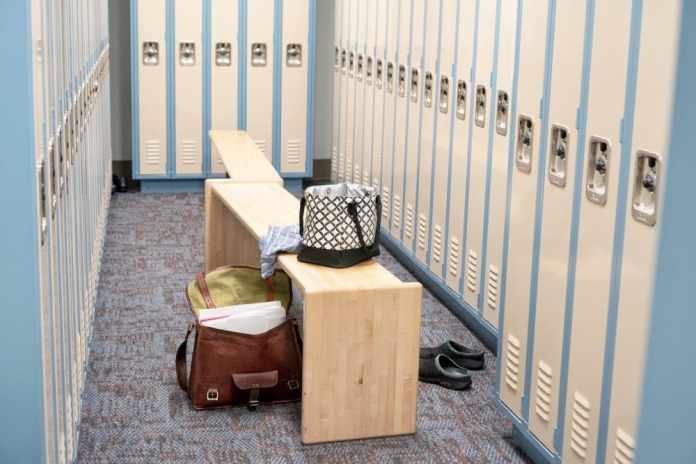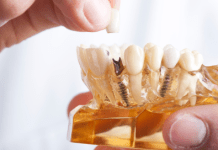There is a need for Cleaning Routine for Healthcare Professionals since the coronavirus pandemic continues to maintain its grasp on the world, cleaning and decontamination have become more important than ever before for people working in the healthcare industry. Physicians, nurses and other providers–even those who don’t work directly with COVID-19 patients–are concerned about accidentally infecting members of their family or spreading the virus in public settings. These concerns have prompted many workers to develop in-depth decontamination routines to follow when leaving work and before entering their homes at the end of the day.
If you work in healthcare and want to take extra steps to protect your community and loved ones, there are several simple things, such as using antimicrobial laundry detergent, you can do to decrease your risk of spreading COVID-19. Keep reading to discover some important sanitation tips for healthcare workers and to learn how to create a post-shift cleaning routine that’s quick and safe.
Leave Non-Essential Items at Home
The Cleaning Routine for Healthcare Professionals more stuff you bring to work with you, the greater your chance of bringing home the novel coronavirus. Since COVID-19 is commonly transmitted through contact and respiration, it’s possible for droplets to land on surfaces like tote bags, purses, etc. And if you don’t sanitize those items before leaving for the day, you could bring the virus home with you.
Make your post-shift cleaning routine easier by leaving the non-essentials at home. Bringing only money, your ID and food minimizes the amount of cleaning you need to do at the end of the day and decreases the risk of transmitting the virus when you leave work.
Be Mindful of What You Wear to Work
Choosing the right work attire can simplify your post-shift cleaning routine, too. Wearing jogger scrub pants rather than wide-leg styles that drag on the floor, for example, means you’ll have to worry less about your pants transmitting germs. Upgrading your old scrubs to newer styles with antimicrobial treatments helps mitigate the spread of harmful contaminants, as well, and provides peace of mind regarding what you’re bringing home on your dirty clothes at the end of your shift.
Disinfect Anything You Bring to Work with You

At the end of your shift, take the time to disinfect anything you brought to work with you before heading home. This includes your ID, credit cards, pens, phone, stethoscope, etc. Diluted bleach solutions, alcohol solutions containing at least 70 percent alcohol and household disinfectant products should all work to get the job done.
Change Before Leaving Work
Before you leave the facility where you work, change Cleaning Routine for Healthcare Professionals into a fresh set of clothes and shoes. It works well to wear one outfit to work, change when you get there and then change back into your original outfit at the end of the day. Remember to change your shoes, too, as they can pick up all sorts of nasty contaminants throughout the course of your day. Place the clothes and shoes you wore while at work in a plastic bag and put the bag in the trunk or back of your vehicle.
When you get home, leave your shoes in the car or in your garage, if possible. Avoid bringing your work shoes inside your home. Clean them using a strong disinfectant on a weekly basis.
Shower and Do Laundry as Soon as You Get Home
When you walk in the door at the end of the day, throw your dirty scrubs in the washing machine with some antimicrobial laundry detergent and then jump in the shower. Do both of these things before spending time with your family to minimize the risk of exposing them to viruses or bacteria. It is best to not even pet your dog or cat before you’ve had a chance to thoroughly clean and disinfect yourself in a hot shower.
Clean Your Car Regularly

Assuming you have your own car you drive to and from work, it is important to thoroughly clean it on a regular basis. While you may not need to do it every single day (unless you’re working directly with COVID-19 patients), it’s still crucial to do some disinfecting on at least a weekly basis. If you use your car for going to work and for transporting your kids or other family members, consider disinfecting it in between work and personal use.
Use antibacterial wipes to clean frequently touched surfaces, including the steering wheel, door handles, turn signal switches, gear shifter, windshield wiper switch, headlight controls, radio dials, etc. It’s also wise to use an antibacterial on your seats, seatbelt, floor and inside the trunk or cargo area. Just make sure the products you choose won’t damage the fabric/leather/vinyl upholstery.
Be Consistent
When it comes to creating a post-shift cleaning routine, consistency is key. Come up with a routine that works for you, and stick to it. The more times you go through the steps of your routine, the more it will become second nature. This decreases the likelihood of missing steps. Even if you don’t work directly with critically ill patients, creating a consistent routine for cleaning up after work means your family and community will be safer if you do come in contact with harmful viruses or bacteria during your shift.
The Bottom Line
Your Cleaning Routine for Healthcare Professionals post-shift cleaning routine doesn’t have to be difficult or take up a lot of your time. By taking simple steps, such as the ones outlined above, you can avoid bringing harmful contaminants home with you. And in addition to protecting your children and elderly loved ones, your cleaning routine can help safeguard your community as a whole by preventing the spread of disease. For additional information about mitigating the spread of COVID-19, check out this study featuring a reusability comparison of melt-blown and nanofiber face mask filters.


















